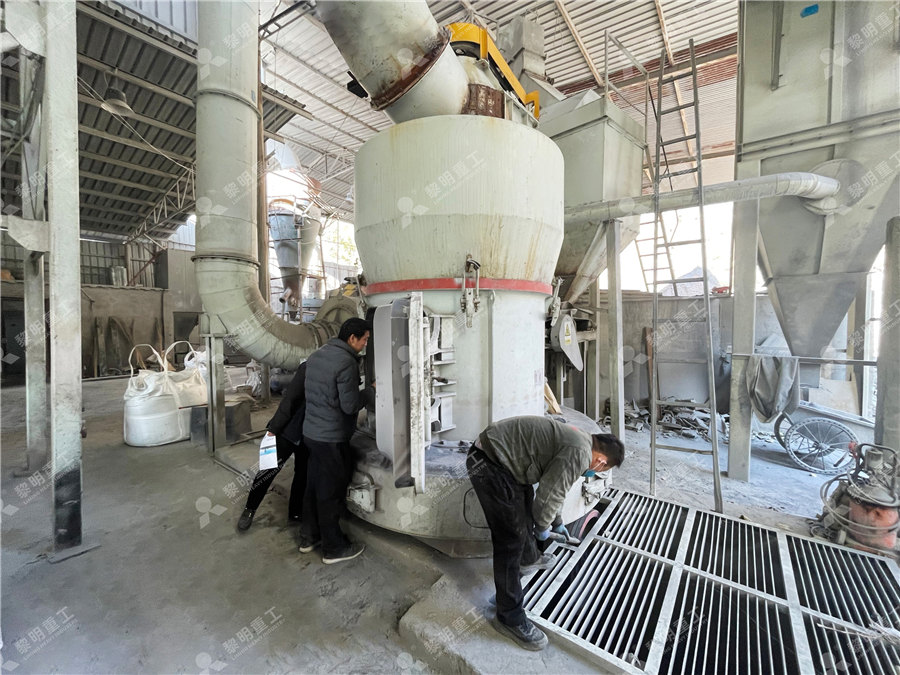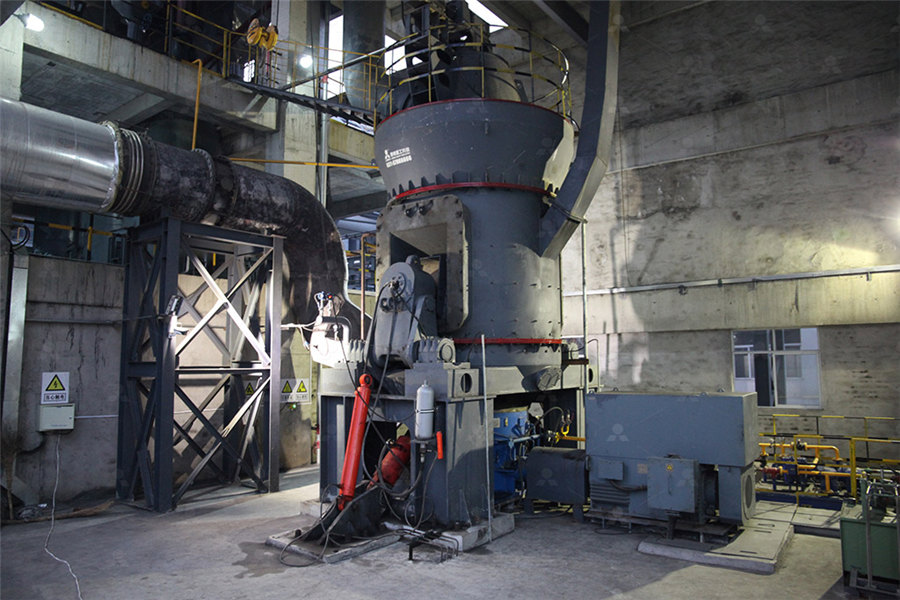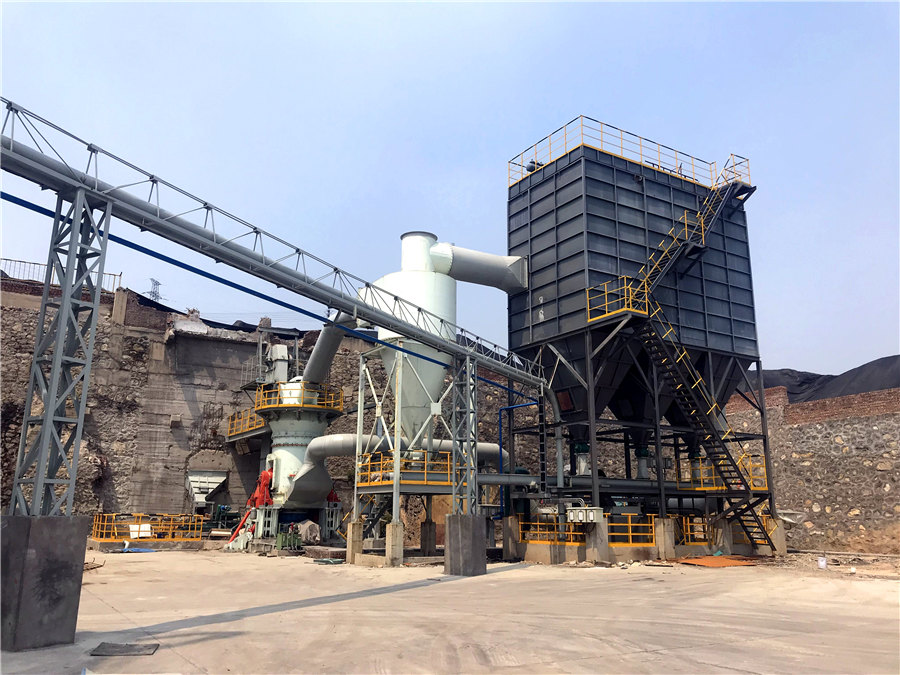
What is the working principle of singlestage limestone calcium carbonate mill

ReviewReview—calcination and carbonation of limestone during
2005年11月1日 Any MgCO 3 present in the limestone will act as inert MgO during the CO 2 sequestration process The addition of limestone at a high temperature to a contacting vessel in which the flue gases contain carbon dioxide, water vapour and sulphur dioxide sets in train a 2021年10月4日 Lime is a product derived from the thermal decomposition of limestone (mainly calcium carbonate, CaCO 3) into quicklime (CaO) and carbon dioxide (CO 2), also called Natural and enhanced carbonation of lime in its different 2023年1月10日 The Lime Cycle The lime cycle shows the stages from quarrying the limestone through to the production of mortars and plasters for our buildings and how it slowly, through Introduction to Lime Lime and its Production2021年1月1日 Lime is a product derived from the thermal decomposition of limestone (mainly calcium carbonate, CaCO3) into quicklime (CaO) and carbon dioxide (CO2), also called (PDF) Natural and enhanced carbonation of lime in its different
.jpg)
Carbonation of Limestone Derived CaO for ACS Publications
2018年4月19日 To get a grip on the optimum conditions for the carbonation of limestone derived CaO in the CaLCSP integration, in the present work is pursued a multidisciplinary approach 2023年3月28日 Several methods for reducing specific CO 2 emissions have been reported in the cement industry, including calcium looping, which uses the reversible reaction between Experimental analysis on calcination and carbonation process in The sintering of CaO is accelerated by higher temperatures and that will lead to the lower carbonation conversion ratios for the CaO The highest carbonation ratio is not obtained for Sintering of Limestone in Calcination/Carbonation Cycles2021年8月1日 In the present work, we explore the use of steam in the CaCO 3 calcination step of the Calcium Looping process devised for thermochemical energy storage (CaLTCES)Kinetics and cyclability of limestone (CaCO3) in presence of steam
.jpg)
Calcium Carbonate (Calcite) SpringerLink
2022年4月12日 Calcium carbonate extracted from chalk or limestone is used as an agricultural fertilizer in slightly acidic soils and in the treatment of drinking water Calcium oxide (lime) is 2014年12月1日 Precipitated calcium carbonate (PCC), a filler and pigment material, is typically produced by calcining limestone at high temperature processes and by recarbonating the Cradletogate life cycle assessment of precipitated calcium 2017年9月26日 Calcium carbonate vertical mill work principle: The motor drives the reducer to rotate the millstone, the raw material is sent into the center of the millstone from the air lock rotary feederWhat is the working principle of calcium carbonate vertical mill?2021年9月13日 The limestone ultrafine mill machine is a highly efficient industrial grinding mill It can grind limestone into a fine powder (1503000 mesh), and the fineness can be adjusted freely In addition, it can also grind 100+ Limestone Ultrafine Mill Machine SBM Ultrafine
.jpg)
Calcium Carbonate (CaCO3) Structure, Properties, Uses of Calcium
Calcium Carbonate (CaCO3) Calcium carbonate molecular formula is CaCO3 Visit BYJU'S to understand the properties, structure and Uses of calcium carbonate (CaCO3) explained by India's best teachers2017年1月1日 PDF Calcium carbonate (CaCO3) is the most widely used filler material in paper, paint, plastic, food, ceramic, cosmetic, medicine and other Find, read and cite all the research you need on Precipitated Calcium carbonate production, synthesis and propertiesCaCO 3 (s) limestone → CaO(s) lime + CO 2 (g) carbon dioxide Lime’s chemical properties Lime (calcium oxide) is a white solid with strongly basic properties Lime reacts readily with water to produce slaked lime, which is the chemical compound calcium hydroxide A considerable amount of heat energy is released during this reactionLime – a timetested chemical — Science Learning Hub1984年1月1日 The precipitation of calcium carbonate from aqueous solutions has been studied at supersaturations sufficient for spontaneous precipitation but low enough to enable highly reproducible experiments Precipitation of Calcium Carbonate in Aqueous Solutions
.jpg)
Hydrocyclone Working Principle 911Metallurgist
2015年8月7日 The centrifugal force (the central Hydrocyclone Working Principle) that is generated by this spin, forces the “bigger particles outwards towards the wall of the cyclone If you were able to do a cross section of a cyclone while it is operating, you could see that the ground rock will become finer the closer that you get to the centre of the cyclonePresence of Calcium Carbonate Source: Readily available dissolved calcium carbonate, either from seawater, freshwater, or weathering of carbonate rocks, is essential for limestone formation Suitable Environmental Conditions: Warm, shallow marine environments favor the growth of calcifying organisms, while arid conditions support chemical precipitation in terrestrial settingsHow Limestone is Formed, Where Does it Form? – Geology InCALCIUM CARBONATE (GCC) REDUCING OPERATING COSTS THROUGH ENERGYEFFICIENT PLANTS ANRCL + Cell Mill Specific energy consumption (kWh / t) Product fineness d 97 (µm) 100 50 20 10 5 2 (GCC) from chalk, limestone or marble is challenging today GCC stands for dry powder or a suspension and is indispensable in today's industryCALCIUM CARBONATE (GCC) Hosokawa AlpinePrecipitated calcium carbonate production, synthesis and properties 59 al (2008) and Lim et al (2010) have investigated mineral carbonation with carbon dioxide gas Teir et al (2007) investigated dissolution properties of steelmaking slags in acetic acid for precipitated calcium carbonate production Effect of limestonePRECIPITATED CALCIUM CARBONATE PRODUCTION, SYNTHESIS
.jpg)
The many lives of calcium carbonate Nature Chemistry
2023年7月24日 The many faces of calcium carbonate Left: single crystal of geological calcite Right: crosssection through a sea urchin spine, which is also a single crystal of calcite2016年10月12日 The simplest grinding circuit consists of a ball or rod mill in closed circuit with a classifier; the flow sheet is shown in Fig 25 and the actual layout in This singlestage circuit is chiefly employed for coarse grinding Closed Circuit Grinding VS Open Circuit Grinding2023年2月28日 Learn everything you need to know about primary crushing, secondary crushing, and tertiary crushing in this comprehensive guide Discover the types of crushers used in each stage, their working principles, and the The Complete Guide to Primary Crushing, Secondary 2016年2月21日 One challenge of the concept presented in Figure 1 is that the produced calcium carbonate is precipitated in a solution of ammonia and ammonium chloride, which raises concern that chloride may be embedded in the product and hinders its commercial use However, the maximum chloride content that can be allowed in a PCC product is not clear as there does not Performance of Separation Processes for Precipitated Calcium Carbonate
.jpg)
Calcium Carbonate(CaCo₃) Definition, Structure, Properties,
2024年7月11日 Structure of Calcium Carbonate Calcium carbonate is characterized by its unique chemical structure, represented by the formula CaCO₃At its core, this compound consists of one calcium (Ca) ion bonded to one carbonate (CO₃) ion The carbonate ion is a polyatomic ion with a trigonal planar geometry, comprising one carbon atom centrally bonded to three oxygen Limestone is an unusual rock in that it fizzes when dilute acid is placed on its surface It is the presence of calcium carbonate that is responsible for this The calcium carbonate content of limestone rocks has been used from the earliest civilisations, dating back to 14,000 BCE, to its extensive use in modern timesLimestone, a fizzy rock – introduction — Science Learning Hub2021年3月3日 Cement is produced by a hightemperature (about 1500 °C) reaction in a rotary kiln of carefully proportioned and blended ratios of lime (CaO), silica (SiO 2), alumina (Al 2 O 3), and iron oxide (Fe 2 O 3)The production of cement is a chemical process requiring an accurate blend of the previously cited four key organic oxides and the limitation of several undesirable Cement SpringerLinkLimestone ultrafine grinding mill can process fine limestone powder, fineness: 1503000 mesh adjustable The main component of limestone is calcium carbonate, Working principle of limestone powder grinding mill When working, Limestone Ultrafine Grinding Mill

Calcium Carbonate: Uses, Dosage, and Potential Side Effects
2023年11月14日 Calcium carbonate supplements are an effective way to increase your calcium intake if your diet isn’t sufficient, or you have a condition that leads to lower calcium levels Learn about 2024年9月4日 Calcium is an essential nutrient found in dairy products, darkgreen leafy vegetables, legumes, and fortified foods The most abundant mineral in the body, 99% of calcium is stored in the bones and teeth Calcium is also important for Calcium: Benefits, Side Effects, Dosage, Interactions Verywell Calcium carbonate limestone, which is also recognized as the chemical compound CaCO3, makes up almost five percent of the earth’s crust and is found all throughout the planet Calcium carbonate’s most common natural forms What is Calcium Carbonate Limestone? Carmeuse2023年12月26日 Chemical Properties of CaCO 3 The chemical properties of calcium carbonate can be visualized in terms of chemical reaction it undergoes Let's have glance on the chemical reactions of CaCO 3 Reaction of CaCO 3 Calcium Carbonate(CaCO3) Limestone Formula,
.jpg)
Formations of calcium carbonate minerals by bacteria and its
2016年3月1日 Biomineralization is a naturally occurring process in living organisms In this review, we discuss microbially induced calcium carbonate precipitation (MICP) in detail In the MICP process, urease plays a major role in urea hydrolysis by a wide variety of microorganisms capable of producing high levels of urease We also elaborate on the different polymorphs and 2024年1月19日 These cements are shown in the subfigures: a Portland cement, b blended cements, c geopolymer and d special cements Please note the different scales in subfigure cNote: (i) all strength values Maximising the benefits of calcium carbonate in sustainable Related pages Limestone – Limestone is a carbonate sedimentary rock that consists predominantly of calcite [CaCO3] Limestones are the commonest rocks that contain nonsilicate minerals as primary components and, even if they represent only a fraction of all sedimentary rocks (about 20 – 25%), their study is fundamental to understand past environments, climate, Carbonate Rocks Geology is the Way2) and soda ash (sodium carbonate, Na 2CO 3) Lime is used to remove chemicals that cause carbonate hardness Soda ash is used to remove chemicals that cause noncarbonate hardness When lime and soda ash are added, hardnesscausing minerals form nearly insoluble precipitates Calcium hardness is precipitated as calcium carbonate (CaCO 3)LimeSoda Ash Softening MRWA

SIZE REDUCTION BY CRUSHING METHODS ResearchGate
2017年3月4日 The double jaw crusher is designed for crushing hard materials, also quarried materials, sand and gravel, and recycling [4, 5] crusher [4] The tie rod and compression spring ensure that the Calcium carbonate is the principal mineral component of limestone Its chemical and physical properties lie behind the modernday uses of limestone as well as the unique limestone landscapes of the countryside Calcium carbonate – mineral forms The principal mineral component of limestone is a crystalline form of calcium carbonate known as Carbonate chemistry Science Learning HubCalcium carbonate, calcium oxide and calcium hydroxide are all made from limestone and have important applications so it is important to know how they are made Calcium oxide (also known as Limestone [GCSE Chemistry only] The limestone cycle2019年1月25日 Calcium carbonate (CaCO 3) makes up nearly 4% of Earth’s crust and is produced mainly by the sedimentation of skeletal remains of marine organisms accumulated over millions of years in the form of, for example, chalk and limestoneCalcium carbonate minerals are involved in the global carbon cycle and have been intensively investigated because of their A hydrated crystalline calcium carbonate phase: Calcium

What is the working principle of calcium carbonate vertical mill?
2017年9月26日 Calcium carbonate vertical mill work principle: The motor drives the reducer to rotate the millstone, the raw material is sent into the center of the millstone from the air lock rotary feeder2021年9月13日 The limestone ultrafine mill machine is a highly efficient industrial grinding mill It can grind limestone into a fine powder (1503000 mesh), and the fineness can be adjusted freely In addition, it can also grind 100+ Limestone Ultrafine Mill Machine SBM Ultrafine Calcium Carbonate (CaCO3) Calcium carbonate molecular formula is CaCO3 Visit BYJU'S to understand the properties, structure and Uses of calcium carbonate (CaCO3) explained by India's best teachersCalcium Carbonate (CaCO3) Structure, Properties, Uses of Calcium 2017年1月1日 PDF Calcium carbonate (CaCO3) is the most widely used filler material in paper, paint, plastic, food, ceramic, cosmetic, medicine and other Find, read and cite all the research you need on Precipitated Calcium carbonate production, synthesis and properties

Lime – a timetested chemical — Science Learning Hub
CaCO 3 (s) limestone → CaO(s) lime + CO 2 (g) carbon dioxide Lime’s chemical properties Lime (calcium oxide) is a white solid with strongly basic properties Lime reacts readily with water to produce slaked lime, which is the chemical compound calcium hydroxide A considerable amount of heat energy is released during this reaction1984年1月1日 The precipitation of calcium carbonate from aqueous solutions has been studied at supersaturations sufficient for spontaneous precipitation but low enough to enable highly reproducible experiments Precipitation of Calcium Carbonate in Aqueous Solutions2015年8月7日 The centrifugal force (the central Hydrocyclone Working Principle) that is generated by this spin, forces the “bigger particles outwards towards the wall of the cyclone If you were able to do a cross section of a cyclone while it is operating, you could see that the ground rock will become finer the closer that you get to the centre of the cycloneHydrocyclone Working Principle 911MetallurgistPresence of Calcium Carbonate Source: Readily available dissolved calcium carbonate, either from seawater, freshwater, or weathering of carbonate rocks, is essential for limestone formation Suitable Environmental Conditions: Warm, shallow marine environments favor the growth of calcifying organisms, while arid conditions support chemical precipitation in terrestrial settingsHow Limestone is Formed, Where Does it Form? – Geology In
.jpg)
CALCIUM CARBONATE (GCC) Hosokawa Alpine
CALCIUM CARBONATE (GCC) REDUCING OPERATING COSTS THROUGH ENERGYEFFICIENT PLANTS ANRCL + Cell Mill Specific energy consumption (kWh / t) Product fineness d 97 (µm) 100 50 20 10 5 2 (GCC) from chalk, limestone or marble is challenging today GCC stands for dry powder or a suspension and is indispensable in today's industryPrecipitated calcium carbonate production, synthesis and properties 59 al (2008) and Lim et al (2010) have investigated mineral carbonation with carbon dioxide gas Teir et al (2007) investigated dissolution properties of steelmaking slags in acetic acid for precipitated calcium carbonate production Effect of limestonePRECIPITATED CALCIUM CARBONATE PRODUCTION, SYNTHESIS













